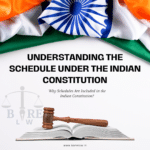What is compounding?
Compounding is settling the matter by making a money payment instead of some other kind of liability. According to the criminal law in India, Victim has the power to compound an offense at his discretion. Section 320 of the code of criminal procedure 1873 deals with the legal provisions regarding the compounding of offenses with the motive to promote good relations and restoration of peace between the parties.
Thus, compounding of offenses is dropping of charges at the discretion of the complainant.
Compoundable offenses
The offenses in which the complainant agrees to drop off the charges against the accused bye by agreeing. Different kinds of compoundable offenses as mentioned in section 320 of the code of criminal procedure are –
- Compounding without the permission of the court
- Compounding with the permission from the court is required
Adultery, defamation, and criminal trespass fall under the category of compounding without the permission of the court whereas criminal breach of trust, appropriation of property, etc. require permission from the court.
What is plea bargaining?
Plea bargaining is the outcome of negotiations between the prosecution and the party before the trial, where the offender pleads guilty to get certain concession or lesser charges. Section 265A to 265L of the criminal procedure code deals with plea bargaining in India.
- It applies to the offenses for which punishment for up to 7 years is present.
- It cannot be applied to the offenses which are against the children are women below the age of 14 years.
- If an order is passed by the court in the case of Plea bargaining, no appeal shall lie against the order.
- Multiple counts are dropped and the charges are reduced.
- It was settled by the supreme court in the case of State of Uttar Pradesh v. Chandrika that criminal cases cannot be disposed of by plea bargaining.
The difference between plea bargaining and compounding of offenses is of a degree.
- Section 265 A – 265 L of the criminal Procedure Code deals with the provisions of bargaining whereas section 320 of the Criminal Procedure Code deals with the provisions of compounding of offenses.
- Plea bargaining consists of guilt and compounding of offenses is guilt-free.
- The concept of bargaining came into existence in 2006 on the other hand the concept of compounding of offenses is in existence since 1974.
- Plea bargaining is not the acquittal of the offender it is just the bargaining of the charges and punishment but on the other hand compounding of offenses results in acquittal.
- Under plea bargaining, the offender cannot claim the benefit under section 300 whereas an accused under compounding of offenses may claim the benefit under section 300 which states that an accused once convicted or acquitted cannot be tried for the same offense or different offense under the basis of same facts.
Note: Such a person shall be tried afterward for the offense with separate charges against the former ones, with the consent of the state government.
You may also like to read:
-
18 Jun 2021 Know Your LawDomestic violence in India
-
26 Jul 2021 Know Your LawHomosexuality, Section 377 of IPC
-
08 Sep 2021 Know Your LawGrounds to defend on the cases of 498A
-
21 Jun 2021 Know Your LawVOYEURISM
-
23 Aug 2021 Know Your LawAdultery
-
10 Jul 2021 Know Your LawCulpable Homicide and Murder











